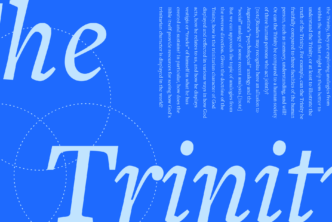The classic “seminary = cemetery” joke never seems to die: many people view theological education as dry, formal, and reeking of mothballs transmitted from the professor’s ill-fitting tweed jacket. If we are honest, theological education has a persistent PR problem. Some pastors may even discourage a potential seminarian from attending a school because of their own difficult journey.
Consequently, many will choose a different path to attain for ministerial training. Some elect to “conference to competency” as one attendee at a regional event recently articulated his strategy. Others push away from anything formal, instead preferring to gain a methodological anchor while serving on the staff of a local megachurch. After all, if that church’s methods worked to grow the assembly, can’t they be replicated elsewhere?
But there’s a reason seminary has long been a standard pathway for preparing ministers: it provides one of the broadest frameworks for introducing the myriad issues, challenges, and joys someone will experience as a minister. Seminary is never comprehensive, nor is it designed to be. Further, it is best when done in concert with work in a local congregation. But I am convinced that seminary is still the best default path for ministry training.
As a professor who has worked in seminaries for almost twenty years and now serves as the president of a Christian university, I have seen quite a few methodological shifts over the years. I have come to believe that there are four key things every student should look for in his or her theological training.
1. Grounded in Scripture
I ran into Peitro at a coffee shop in Jerusalem. He was studying at the Pontifical Institute in their very unique program. He explained the rough outline of his course of study to me this way:
- Year 1: Greek and New Testament
- Year 2: Hebrew and Old Testament
- Year 3: Doctrine and Theology
In my mind, Pietro was doing something amazing. Students were not allowed to explore the depths of theology or doctrine until they had spent substantial time digging deeply into the text of Scripture. It was only after students had immersed themselves in the Word that they could move beyond the text into theology.
In the evangelical circles in which I operate, we like to talk about maintaining a “Word-centric” or “Bible-centric” curriculum, but students should definitely examine what that means for any given school or program. If the main task of ministry is to serve the people of God, there is no better area of study in which to immerse ourselves than the Word of God. More than any other area, a minister’s (or counselor’s, or professor’s, etc.) training and competency in the Word should be the foundation for every other area of study. The Word is the only ultimate source of authority from which a minister may speak.
Theological education has long upheld the priority and primacy of the Word. It’s why MDiv programs emphasize the original languages. It’s why even basic theological degrees delve into the contours of the Old and New Testaments. Above every other item, find a seminary that immerses you in the Word. It’s the surest foundation for a life of service to Christ’s body.
2. Convictional in doctrine
We all know there is a wide variety of theological interpretation within our various ecclesiastical traditions. Christian theology encompasses unique ecclesiologies, eschatologies, and other aspects of secondary and tertiary commitments. Yet it is in these doctrinal eddies that one frequently finds a theological home and family. As a student seeking to train for effective ministry, the best place to look for training should usually be the seminary attached to your current church network or denomination. Those institutions are specifically designed to help you understand the conversations within your family of churches—while at the same time exposing you to theological conceptions present within the broader contours of Christianity. To this end, the seminary tied to your network should be confident about their own doctrine.
The temptation for some seminaries is to be softer on doctrine in order to attract more students. When searching for a seminary, find an institution that has a clearly delineated faith statement to which all faculty subscribe and for which they are willing to advocate. While you may not agree with every aspect of that faith statement, if you are connected to an institution that has crystal-clear doctrinal commitments, you will know the faculty’s theological foundations. This will allow you, as the student, to ask better and more robust questions.
3. Anchored to the local church
A seminary is only as good as its ties to the local church. Period.
If the apostle Paul is correct, the local church is the place where God chooses to expose the world to the beauty of the gospel (Eph 3:10). A seminary should be designed to aid the local church in its mission, not become an end unto itself. In your search for a seminary, look at the number of internships and direct church partnerships and evaluate whether the seminary itself upholds the beauty of the local church.
A seminary worth your time and investment will have a well-oiled system to engage you in the work of the local church. Far too many students preparing for ministry short themselves here. Whether online or on campus, the academic system should perpetually drive you into deeper connection with the local church. Internships, professional interviews, service opportunities, assignments that are local-church based—all of these are hallmarks of a seminary tied to the local church.
4. Clear in mission
Just like a church, a seminary without a clear mission is a seminary adrift. You want to know the unique mission of every seminary you evaluate as a prospective student. Is that particular focus something that aligns with God’s calling on your life? It’s in the mission that a seminary embraces that you should find the core drivers of the institution.
In other words, if you are called to missions, lean more towards a seminary that emphasizes global outreach in its mission. If you feel led to preach, don’t overlook a seminary with a clearly articulated mission that emphasizes preaching. While that may not be the final criterion driving your selection, be sure you know where the seminary you choose is claiming to head.
Additional considerations
Once you have settled on these four classic hallmarks of a solid seminary, you should take into consideration a few more aspects that might help solidify your choice of where to attend.
1. Flexibility in pedagogical method
Attending seminary in person is now a unique opportunity enjoyed by only a certain percentage of students. Not everyone can pull up stakes and move to campus. Be sure to ask questions about the flexibility of the pedagogical method at your prospective seminary. If the seminary only advocates for on-campus learning or only for online instruction, I would encourage you to look elsewhere.
Consider this scenario: James finishes college and heads to seminary for on-campus training. Half-way through his training, a church offers him a position, but it is a three-hour drive away from the campus. Should he stay and finish his degree or go and serve? If James is attending a seminary that only prioritizes on-campus learning, he might miss out on a unique calling or opportunity to learn in the field by shifting gears and finishing his education online. What if during his final semester he wants to return to campus for a two-week, in-person intensive with his favorite professor? As a seminary student, you should have the flexibility of pursuing your calling while enrolled as a student. Only a seminary with flexible pedagogy releases you to maximize your training and ministry service.
2. Awareness of the bivocational reality
The future of ministry is bivocational/covocational. This is the game-changing, practical reality on the ground that will deeply impact the lives of seminarians, churches, and future church leaders. With each passing year, the number of congregations with the capability of paying a livable wage continues to drop.
A seminary that cares for students and the local church should help students maximize their skills to move toward building healthy leadership and service patterns that empower church members to do the work of ministry in their local context. In some respects, this is healthy and good for our congregations. No longer can church leadership be focused on the sole pastor of a congregation. Bivocational leaders become experts at developing leaders within the congregation who can maximize community and global engagement. Does the seminary you are checking out teach you how to do this?
But that’s not all! This bivocational reality should also drive a conversation every prospective student should have with the seminary he or she will choose—does it financially fit?
3. Financial fit
Education is expensive. Well-executed, accredited degrees will be an investment in your future and in your congregation’s future. They hold great value. But don’t be foolish with finances. Find seminaries that offer financial flexibility in accessing your course of study, but be careful if you are pressed to consider only loans for financing your education. Ministry salaries are not always the highest. If your seminary places you under the burden of a lifetime of debt, you may be hampered from serving in the mission field or in that congregation that needs your gifting.
The call to ministry should be taken seriously. It should be a call to prepare for service to the King and his bride, the church. Seminary can be a very effective way to lay a foundation for decades of faithful ministry for Christ and the church. Find the seminary that maximizes your calling, pursue your course of study, and serve the church!
Related articles
- Learning by Doing: How to Train Seminary Students for Ministry
- Seminary and Church: Allies or Enemies?
- How to Be a Great Youth Pastor: A Complete Guide
- Going to Seminary? 3 Mercifully Simple Tips for the Journey
Recommended resources for those beginning or considering seminary
Surviving and Thriving in Seminary: An Academic and Spiritual Handbook
Regular price: $12.99
Succeeding at Seminary: 12 Keys to Getting the Most out of Your Theological Education
Regular price: $5.99
Now That I’m Called: A Guide for Women Discerning a Call to Ministry
Regular price: $11.99






